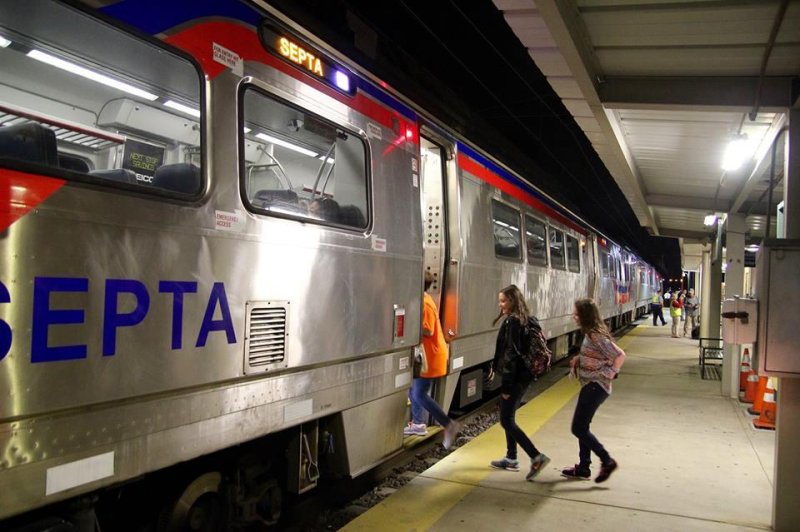Philadelphia's bus, train and trolley drivers went on strike at midnight Tuesday in a job action which could interfere with Election Day voting in the area.
Photo courtesy of SEPTA/Facebook
PHILADELPHIA, Nov. 1 (UPI) -- Philadelphia's nearly 5,000 union transportation workers walked out at midnight, signaling the start of a strike which could impact Election Day.
Despite a last-minute visit from U.S. Rep. Bob Brady, D-Pa., urging a settlement, the local transit authority SEPTA and Transportation Workers Union Local 234 could not come to an agreement on a comprehensive contract. At midnight Monday 4,732 workers went on strike, halting bus, subway and trolley traffic in Philadelphia.
More than 400,000 people use the city's transit service daily. The area's Regional Rail, Norristown High Speed Line, CCT service for disabled passengers and the LUCY bus loop through the University City area, whose drivers are represented by other unions, will continue operations.
"We are not able to come to an agreement with SEPTA so as of 12:01 a.m. we're on strike," said Willie Brown, president of Transportation Workers Union Local 234.
Of immediate concern is the Nov. 8 presidential election. The area is regarded as critical to both candidates. Pennsylvania is considered a battleground state, with Hillary Clinton leading Donald Trump by 4.7 percentage points. SEPTA said in a statement that it would seek an injunction from the U.S. District Court for union members to return to work on Election Day if the strike continues that long.
"Hillary Clinton's guy, Corey Dukes, had a little concern," Brady, making reference to Clinton's Pennsylvania campaign director, said after speaking with both sides in the dispute on Monday evening.
The transit authority and the union negotiated past the midnight deadline, although buses stopped running and picketers came out in force. Union workers balked at possible increases in healthcare costs from the current $552 per year to up to $6,000, as well as a pension cap at $50,000 while managers' pensions had no cap. Issues of driver restroom breaks and driver fatigue also were not settled.
SEPTA argued that its $1.2 billion pension is only 62 percent funded, and that workers have a "Cadillac-class" healthcare plan for which they pay only $46 per month.
Because of the strike, Philadelphia's Uber, Lyft and Zipcar ride-sharing services, as well as the Indigo bicycle service, began offering discounts and extensions of service.















